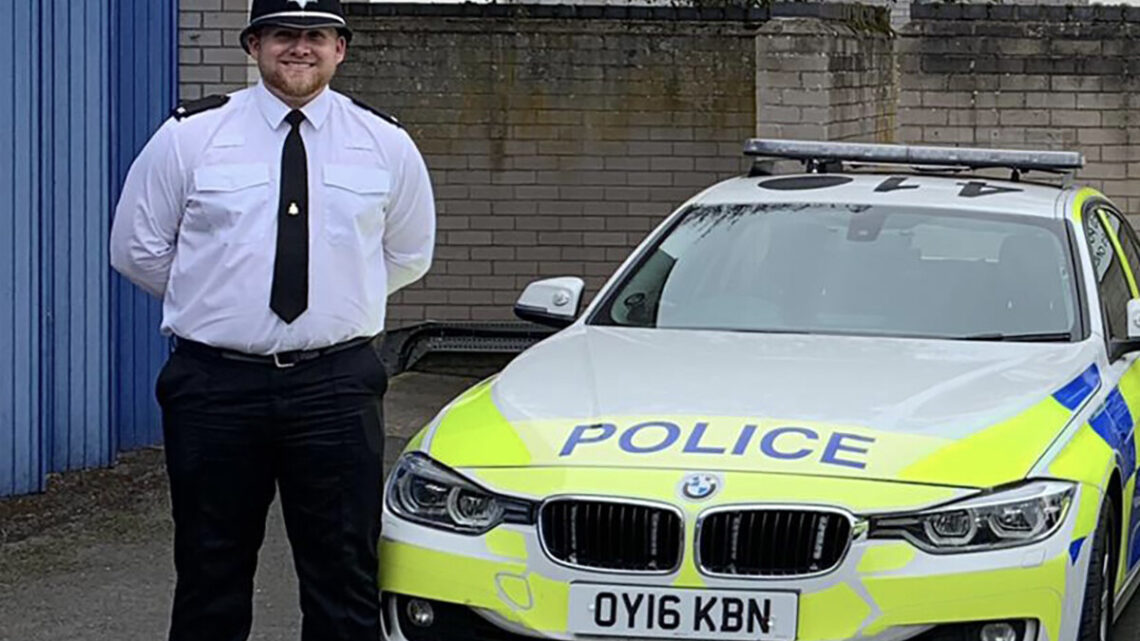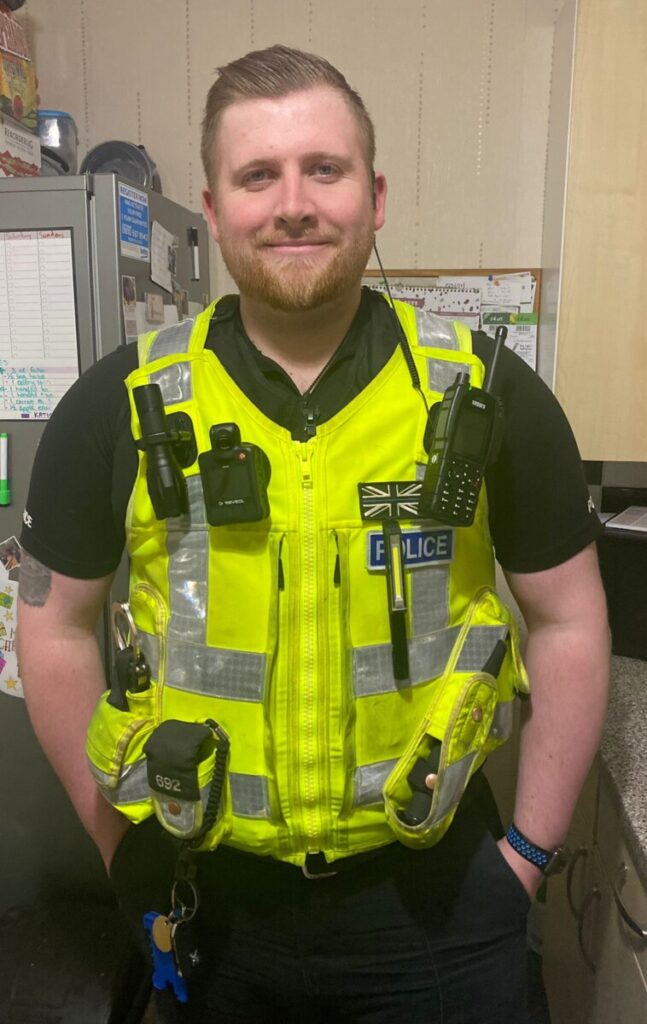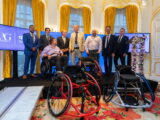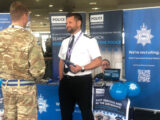
Civvy Life – Lance Corporal to Police Constable
Ryan Rolfe Served with REME before leaving to join the police in 2020.

What’s your Military background?
I joined back in 2015 and went through all the training, through Harrogate and through Lyneham and went to Battalion in 2017 where I did quite a few deployments.
I gained quite a lot of experience quite quickly. I gained my Class 2 and promotion and got retained at Battalion as Lance Corporal. I went on another deployment and then once I came back from that, I made the decision to leave in 2019.
I’d been on so many deployments and I think the general consensus was normally that when you get promoted, they look at posting you elsewhere, but I was told I was going to stay at Battalion for another four years. I’d also started to settle down properly with my partner, who’s now my wife, to start a transition back towards having more of a family life. I’d been drawn away from it so much, that I felt like I was losing my connection with it.
How was resettlement?
I made my decision fairly quickly, so my process was also fairly quick. I didn’t actually get the opportunity to utilise any of the resettlement courses but I applied to the police and I started the police training course in April 2020.
How did you come to make the decision specifically to join the police?
The police interested me because I’ve got friends who are officers and my now brother-in-law is also a police officer. I was talking with those people to get more of an idea of what it was actually like to be a police officer.
Cambridgeshire Police training, at the time, was a non-residential 16-week course. Essentially, you go to a training facility Monday to Friday, nine to five. You go through legislation, powers, use of force, the different paperwork and systems that the Constabulary use, as well as exercises. You do roleplays to try to put the training you’ve learned into a given scenario.
Within the first week, you make your oath to the office of constable. It’s a free course and you start getting paid as you start it.
What’s your current role with the Constabulary?
I finished my portfolio back in March. Prior to that, I was regarded as a student officer. Now because I’ve completed that portfolio, I’m out of my probation, so I’m now a full police constable.
At the moment, I’m on the response team, who respond to 999 and 101 calls. We attend the scene and deal with and investigate crime, as well as making sure we get the best outcome for victims.
Is there an opportunity for career development?
Yes, there are a lot of different qualifications and courses you can take on. For example, I’ve got my method of entry training course done. Every officer is able to use the powers of entry to get into a property but unless you’ve been on a specific training course, you can’t use the equipment, such as the ‘big red key’ (officially, the Enforcer battering ram).
More recently, I’ve just been on a tutor constable course, which means I’m now eligible to train new students that are coming through. They get what they call a tutor period where they are paired with a qualified officer to take them through the process. On top of that, I’ve just recently had my confirmation from my blue light response course, so I’ll be going on that soon.
Do you notice differences in candidates from Military and civvy backgrounds?
Because there’s constant learning and re-skilling in the Army, what you tend to see is that we (Veterans) pick things up a little bit quicker. The trainers do notice, especially when it comes to areas like officer safety training and the unarmed tactics of hand-to-hand defence and things like that. They tend to see that you’re just that little bit ahead of the civilians on the course.
Police services in general seem to have a very good relationship with Veterans…
Yes, they understand the hierarchy. One of the good things is you’ll find that a lot of sergeants and a lot of the higher ranks as well, are ex-Forces. You tend to have a better relationship with them, when you understand each other and when you know that you’re both ex-Servicepeople. You start to build rapport with them a little bit quicker than other people might.
What skills do Veterans bring to the policing role?
I would say one of the biggest things that they bring is around the officer safety element. You’re always looking out for other people on the team. Ex-Servicepeople have a lot of hazard perception and situational awareness. That comes in very useful, especially on response teams, where you’re going into live incidents where one moment, it can be calm as anything before the flight trigger then leads it to becoming a violent incident. We’re very good at picking up on that.
I find that there’s a lot of respect for Veterans on the job, because of what they’ve done previously and also, because they understand we have a lot of life experience. I’m one of the younger people on my shift but there are a lot of people that look to me because I’ve got quite a bit of knowledge and they come to me for advice.
What do you miss from the Armed Forces? And what do you most appreciate in your current role?
I used to love going on deployments and seeing different places across the world.
At the moment, obviously, there are other people that are a bit more experienced than me on our shift. But I’m someone that they come to first. That assists me with my self-progression and seeking promotion in the future.
Cambridgeshire Constabulary serves one of the UK’s most rural but fastest growing counties.
The constabulary employs approximately 1,600 officers and 900 staff and covers an area of more than 3,500km, with a population of about 850,000.
Cambridgeshire Constabulary is currently looking for police officers and there are several ways to join, including for those with and without a degree, and an accelerated detective constable programme.
Visit: www.cambs.police.uk and click on ‘apply or register’.



